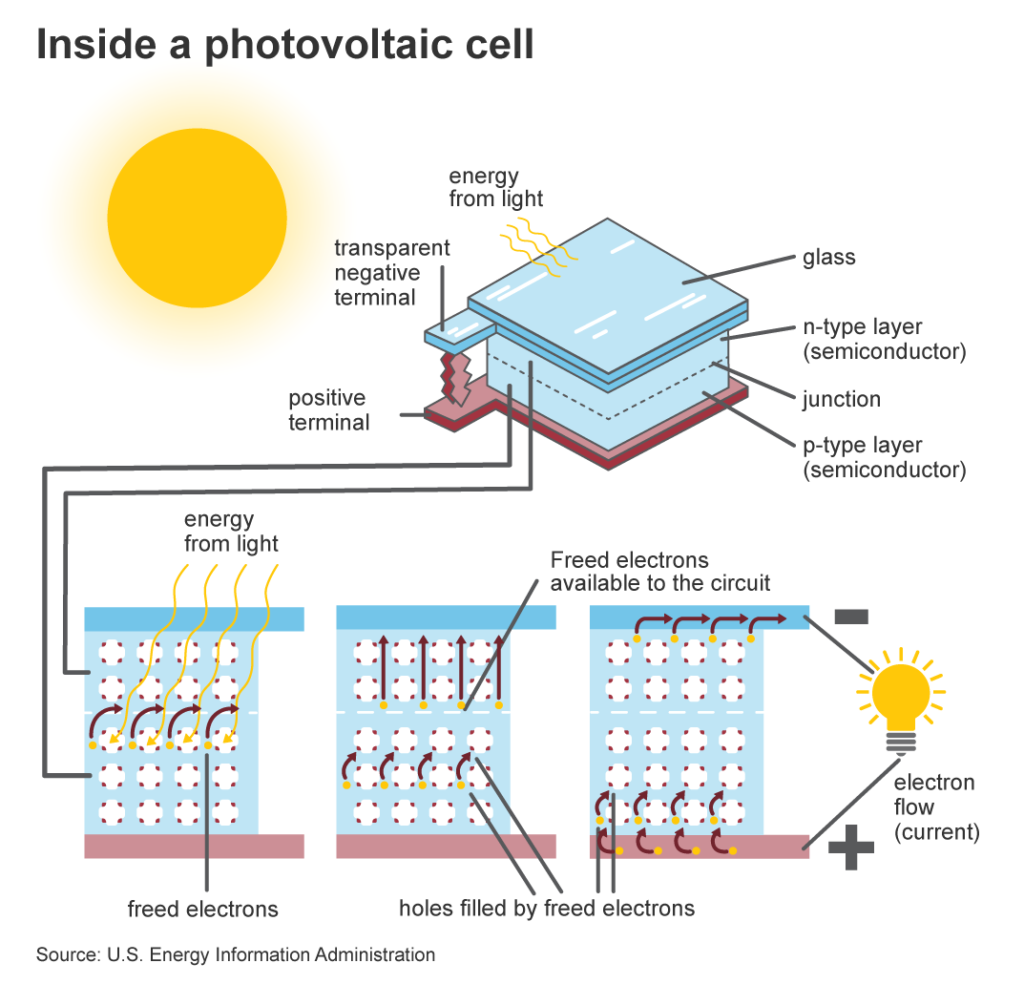Advancements in Photovoltaic Technology
Solar energy stands at the forefront of the renewable energy revolution, playing a crucial role in the global push towards sustainable development. Innovations in solar technology are continuously improving efficiency, reducing costs, and making solar power more accessible. This article explores the latest advancements in solar energy and their implications for sustainable development and economic empowerment.

Solar product Trading

Solar Panels
Supply of high-efficiency solar panels from leading manufacturers.

Batteries and Storage Solutions
Reliable energy storage systems for uninterrupted power supply.

Inverters
Provision of advanced solar inverters that ensure optimal energy conversion.

Mounting Systems
Durable and easy-to-install mounting systems for various types of installations.
High-Efficiency Solar Cells
One of the most notable advancements in PV technology is the development of high-efficiency solar cells. Traditional silicon-based solar cells have seen significant improvements, but new materials and designs are pushing efficiency rates even higher.
- PERC (Passivated Emitter and Rear Cell) Technology: PERC cells add a passivation layer to the rear side of the cell, which reduces electron recombination and enhances efficiency. This innovation has increased the efficiency of solar cells beyond 22%, making them more cost-effective by producing more power per square meter (Fraunhofer ISE).
- Tandem Solar Cells: Tandem cells stack multiple layers of solar cells with different band gaps to capture a broader spectrum of sunlight. This design can achieve efficiencies above 30%, significantly higher than traditional single-junction cells. Research in perovskite-silicon tandem cells shows great promise, as perovskites can be easily tuned to different wavelengths.

OUR MISSION MAKE SOLAR ENERGY ACCESIBLLE

Solar Energy and Sustainable Development
The advancements in solar energy technologies are not just about innovation; they play a significant role in promoting sustainable development and economic empowerment.
- Energy Access and Poverty Reduction. Solar energy projects, particularly in off-grid and remote areas, are transforming lives by providing access to electricity. These projects support education, healthcare, and economic activities, contributing to poverty reduction and improved living standards. Organizations like the International Solar Alliance (ISA) are spearheading initiatives to expand solar energy access in developing countries.
- Environmental Benefits. Solar energy is a clean and renewable source of power, significantly reducing greenhouse gas emissions. By replacing fossil fuels with solar power, we can mitigate the impacts of climate change and promote environmental sustainability. The widespread adoption of solar energy supports the achievement of global climate goals outlined in the Paris Agreement.
- Economic Empowerment. Investments in solar energy infrastructure generate jobs and stimulate local economies. From manufacturing and installation to maintenance and management, the solar industry offers diverse employment opportunities. Impact investing in solar projects can drive economic growth in underserved regions, aligning financial returns with social and environmental benefits.
Our Suppliers

